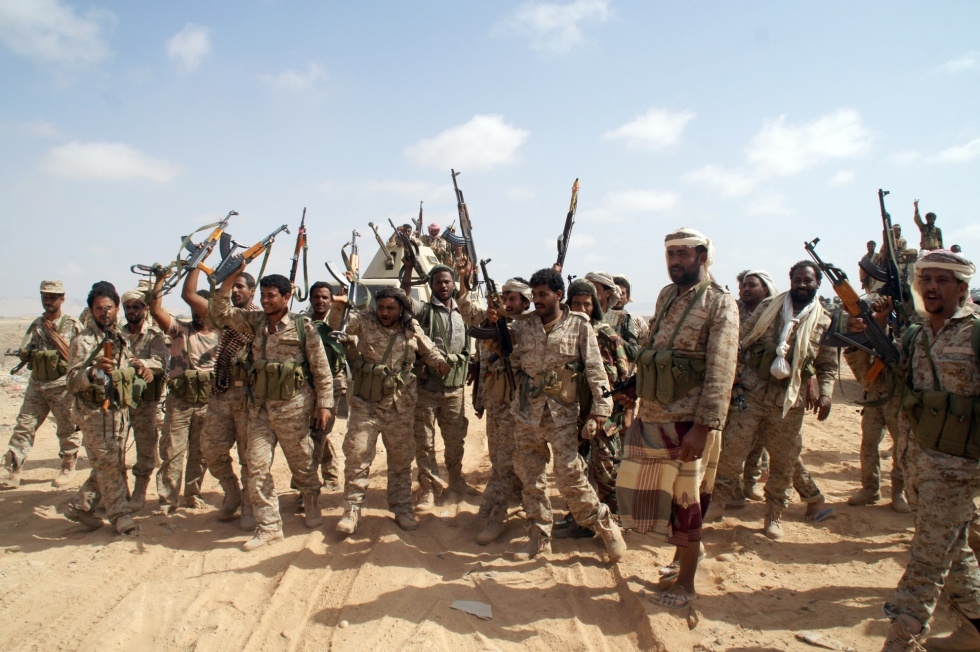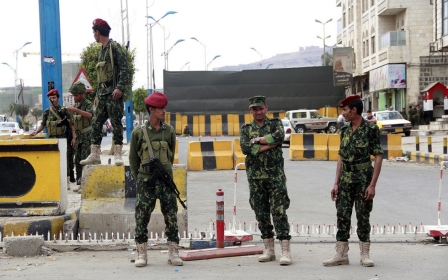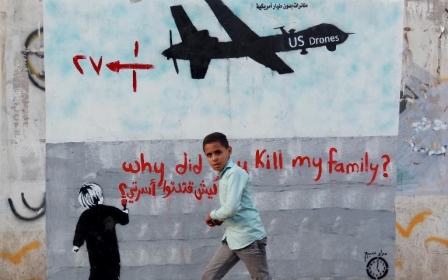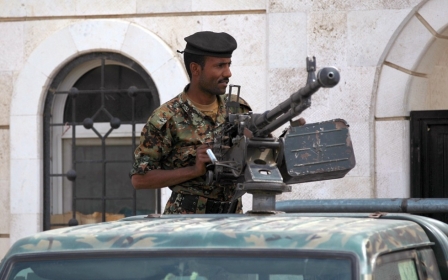Fresh fighting erupts in Yemen, president's palace attacked

Fighting continued across Yemen on Friday with the defence minister surviving an assassination attempt in the south of the country where the government is currently launching an offensive against al-Qaeda forces. As part of the drive, government forces said on Friday that they had killed two al-Qaeda fighters and captured two French citizens belonging to the group prior to the assassination attempt. Meanwhile in the capital Sana’a five guards at the presidential palace were killed in an attack by unknown gunmen and 11 police officers were injured in a bomb blast on a bus.
Defence Minister Mohamed Nasser Ahmed, intelligence chief Ali Hassan al-Ahmadi and military police chief Awad Majwar al-Awlaqi were travelling from Abyan province to Shabwa province in the south when they came under fire, a military official told AFP.
They had just completed a tour to monitor the military’s offensive when they were ambushed. Noone was hurt in the subsequent exchange of fire that lasted 15 minutes.
It was not immediately clear who had carried out the raid, although the government has found itself under attack on several fronts and is also locking horns with Shiite Houthi rebels and southern seperatists.
The Yemeni army launched a major offensive on 29 April against al-Qaeda in the Arabian Peninsula (AQAP) in three provinces of the south and claims it has inflicted heavy losses on the group.
New MEE newsletter: Jerusalem Dispatch
Sign up to get the latest insights and analysis on Israel-Palestine, alongside Turkey Unpacked and other MEE newsletters
State media said on Friday that Yemeni forces leading the offensive had killed two foreign al-Qaeda fighters – a Saudi and a Dagestani – and captured two French citizens of Tunisian descent who also also belonged to the group and were attempting to leave the country via an unidentified airport.
Meanwhile fighting restarted in the capital Sana’a after security forces killed a prominent al-Qaeda commander, Shayef Mohammed Said al-Shabwani, on Thursday night.
Shabwai was “one of al-Qaeda’s most dangerous and wanted commanders” a security forces spokesperson told AFP, adding that he was involved in the killing of Yemeni policemen. He was killed in a firefight near the presidential palace after resisting arrest at a checkpoint, the spokesperson told AFP.
Presidential compoud attacked
Seperately on Friday a bomb on a bus injured 11 policemen in an eastern area of Sana’a, where foreign embassies are located, while five guards were killed in an attack on the presidential palace by unknown armed men.
Gunmen shot at security forces then fled to a road near the presidential palace, where they shot and killed five guards, before fleeing the area, according to the AFP and local residents who spoke to the Middle East Eye.
A security source told AFP that President Abdrabuh Mansur Hadi was not in the palace and local sources suggested al-Qaeda members resident in Sana'a may be responsible for the attack.
“There are numerous al-Qaeda sleeper cells in Sana’a, who become active when the government move against the group in the south,” said Abdulaziz al-Saqqaf, a youth activist in Sana’a.
“The government has done a poor job and failed to improve the security situation in Sana’a” he added.
Al-Qaeda offensive gathers pace
However, Saqqaf also praised the government offensive against al-Qaeda in the south, saying that the operation was proving a success.
“Moving against al-Qaeda is the right thing to do and it is going well in the south, but the problem is that after these areas are liberated who will provide the basic services that al-Qaeda currently do?” he said. “It is crucial the government step in after the battles are over and become the provider of these services to ensure al-Qaeda does not return.”AQAP have established security and judicial systems, as well as distributing food and collecting taxes in the areas where they have de facto control.
Authorities say they have killed dozens of fighters since the offensive began, with Defence Minister Ahmad saying that AQAP’s presence in Yemen was slowly being erradicated, according to AFP.
Hundreds have been killed by American airstrikes in southern Yemen since 2002, with a string of large scale attacks last month estimated to have killed some 60 fighters although independent confirmation of the casualties has been slow to materialise.
Human rights groups have widely condemned the use of drones and say that these kinds of attacks help to create resentment, which in turn helps AQAP to recruit more fighters.
“Drone strikes might kill one or two AQAP members but for every person they kill they are creating a recruitment pool of 10 new members” Segav Kechichian, Yemen researcher at Amnesty International, told MEE last month.
Local activists agree and say drone strikes have added to the ranks of AQAP.
“Many people have joined al-Qaeda to seek revenge for their relatives,” Farea al-Muslimi, Yemeni writer and youth activist said. “There is a new generation of AQAP and it consists of brothers – mostly – of those who were killed by US drones”.
On Friday night residents in the capital said the shooting had stopped and relative calm had been restored.
Middle East Eye delivers independent and unrivalled coverage and analysis of the Middle East, North Africa and beyond. To learn more about republishing this content and the associated fees, please fill out this form. More about MEE can be found here.




